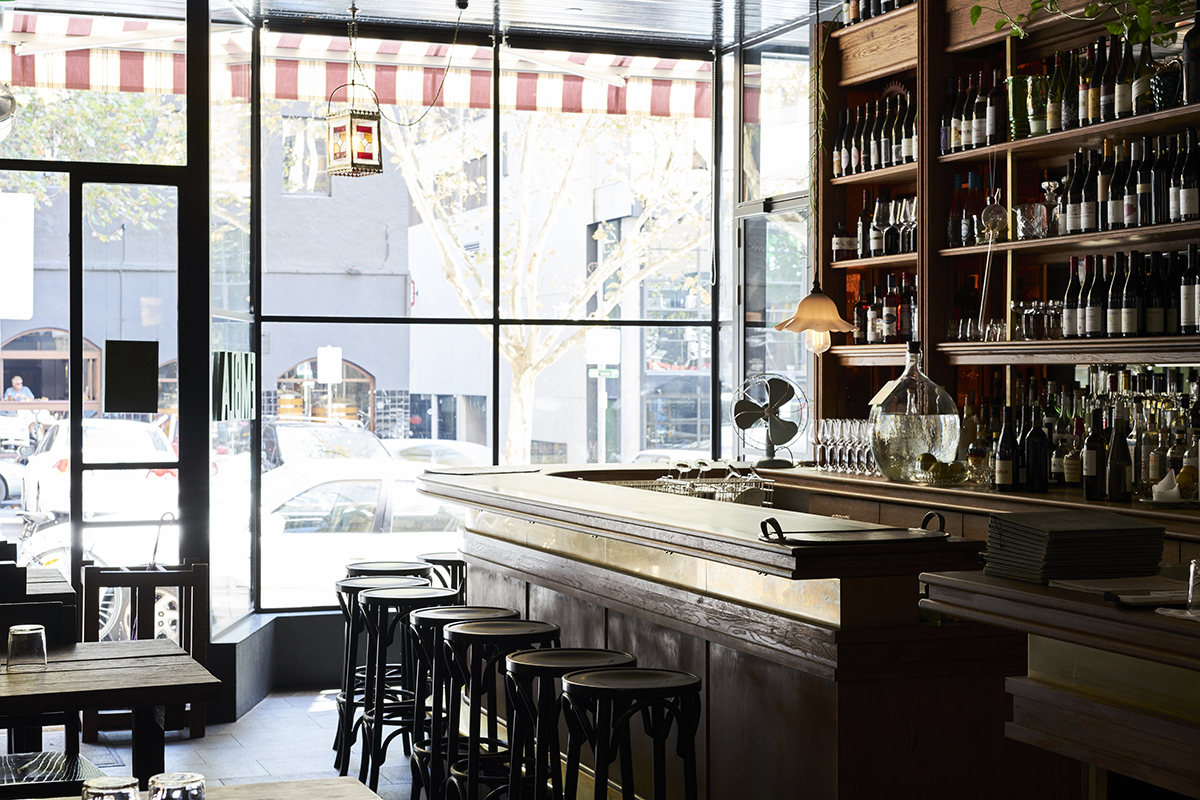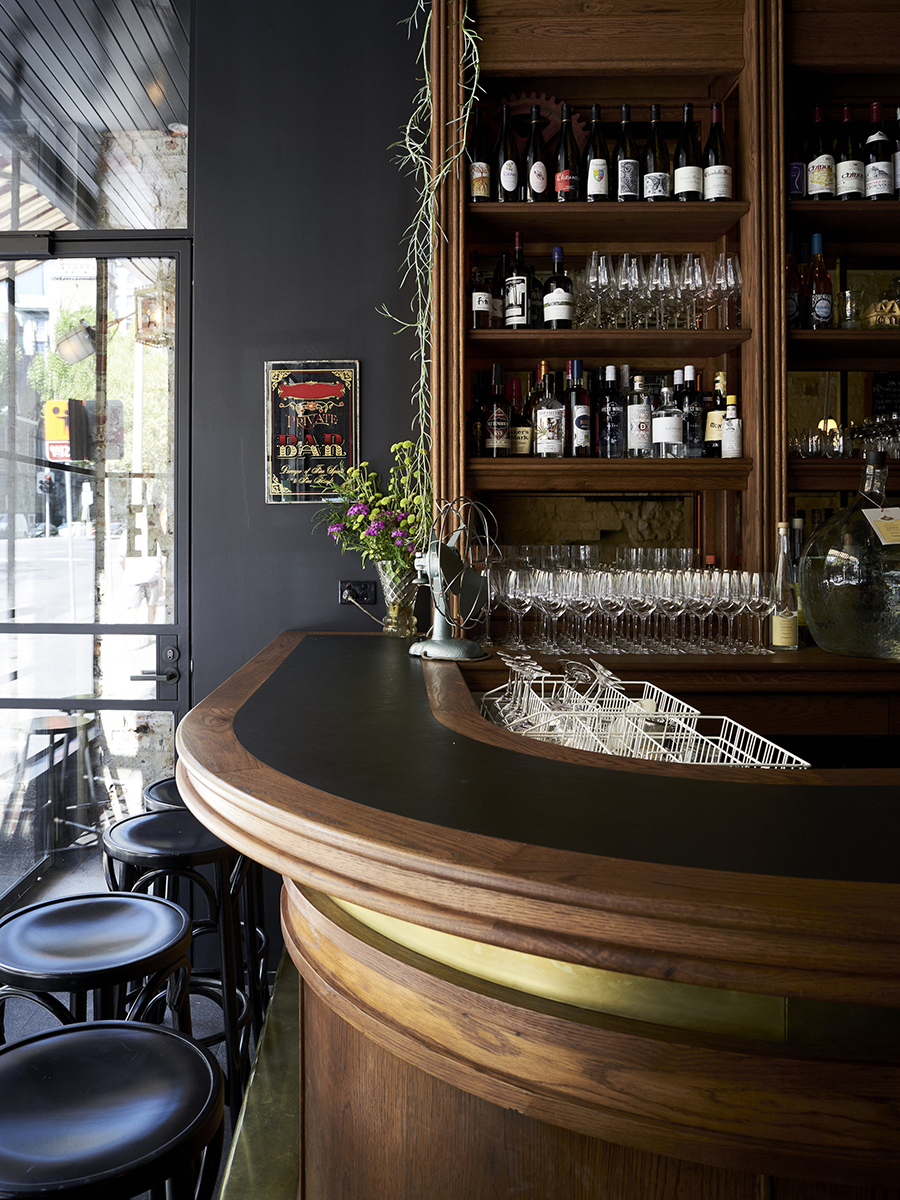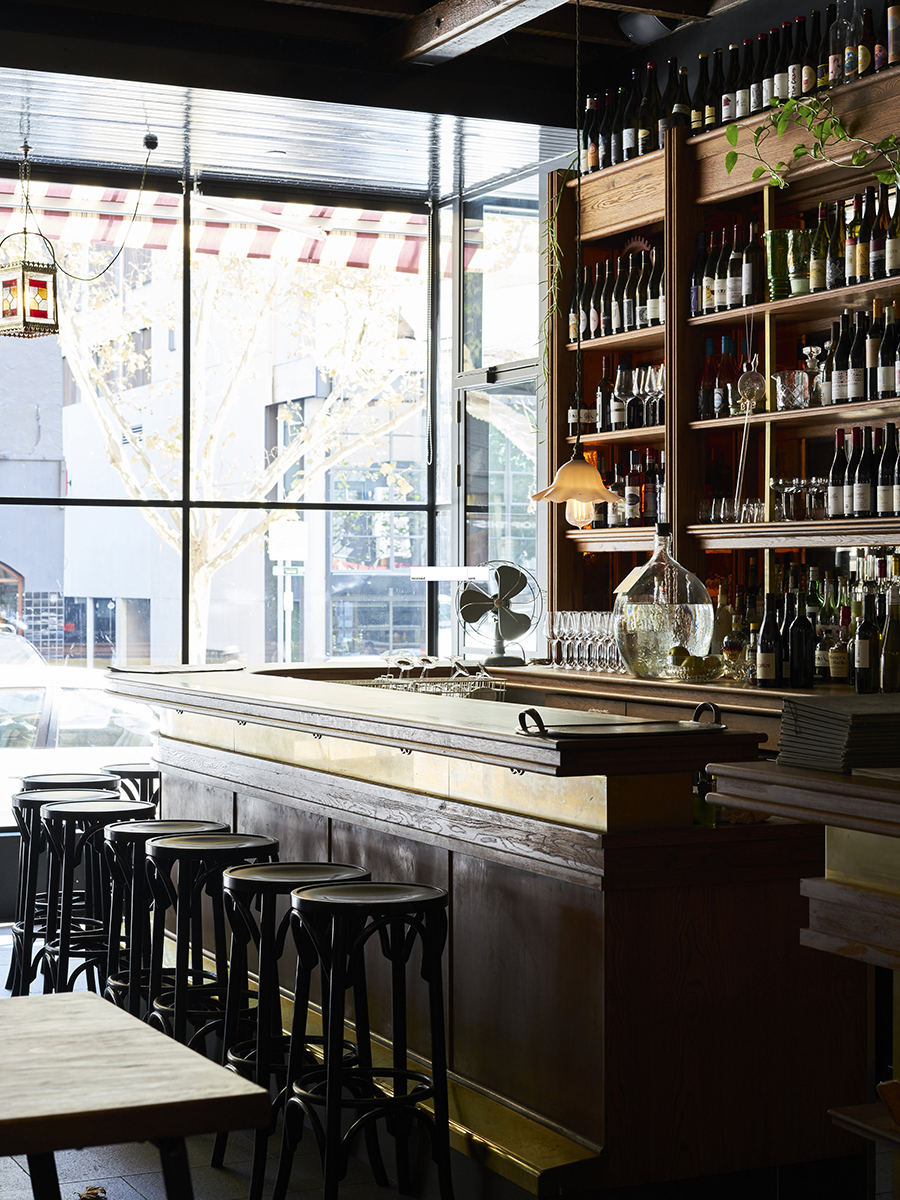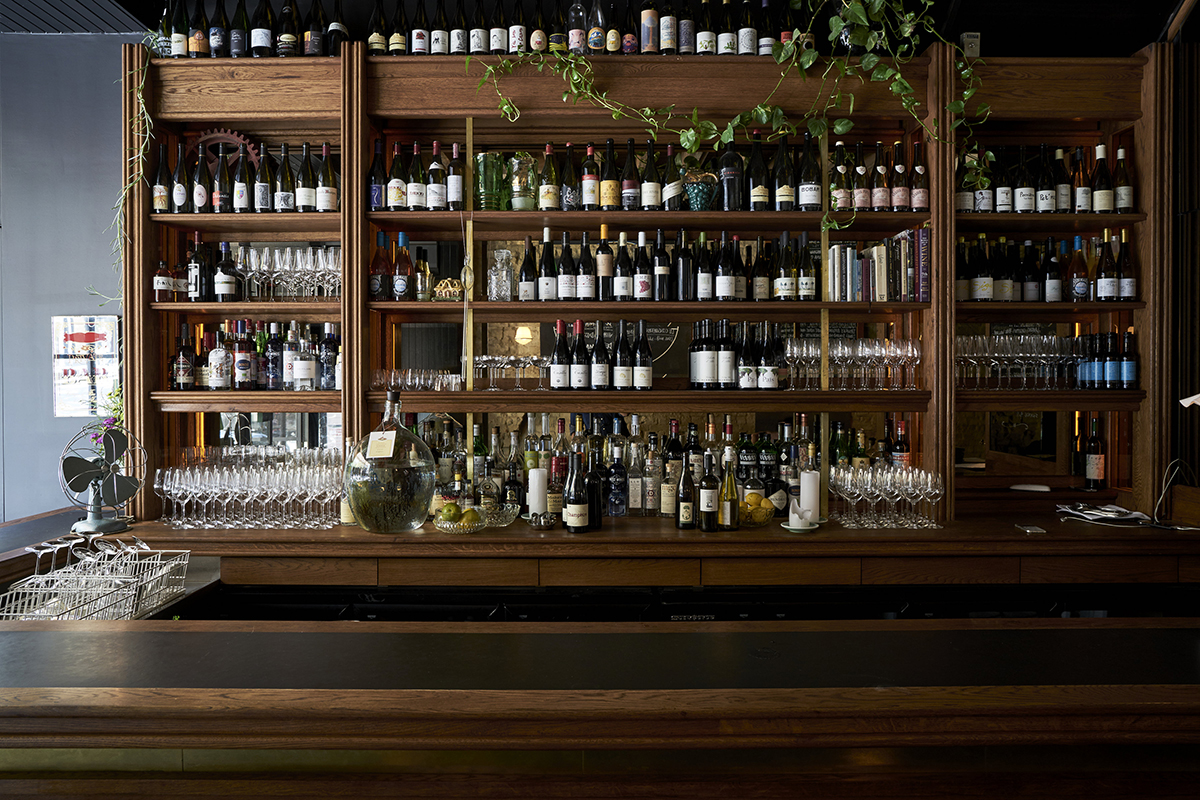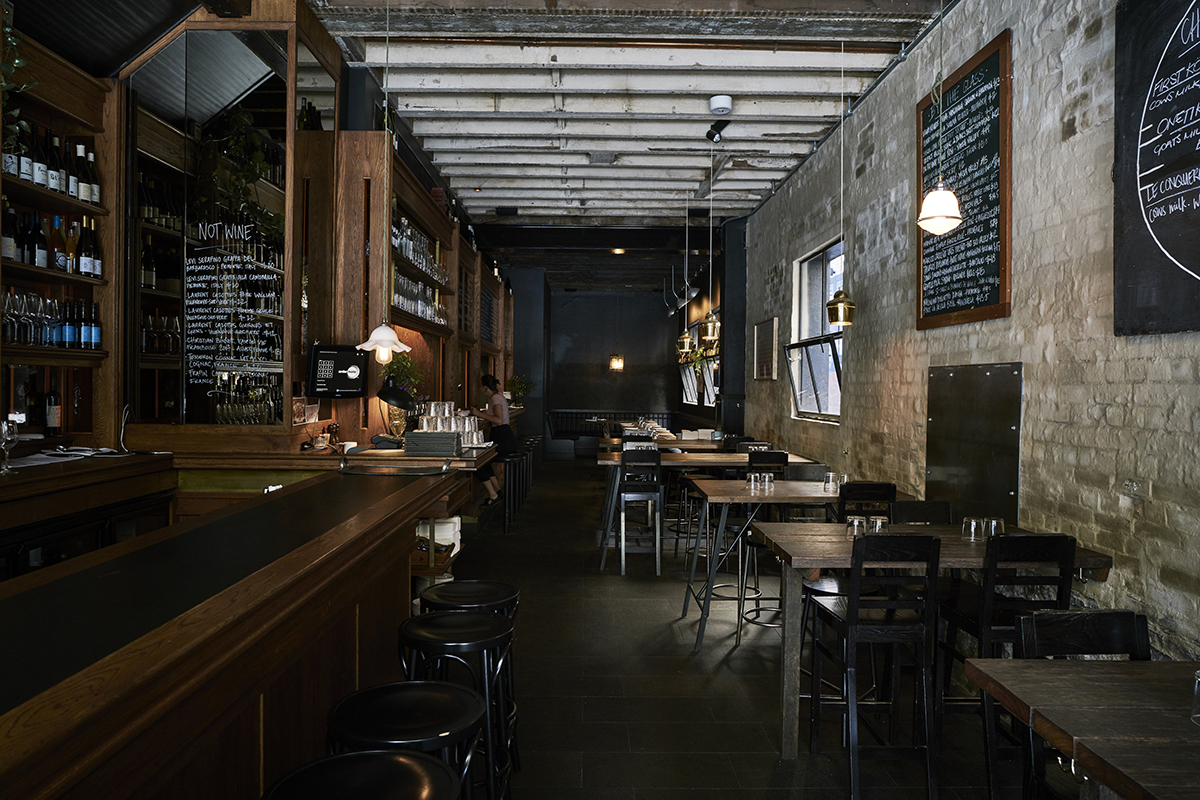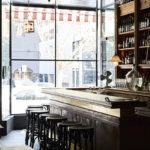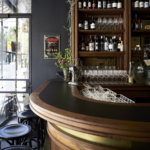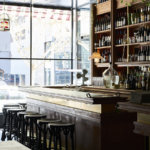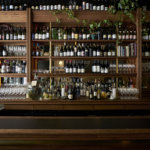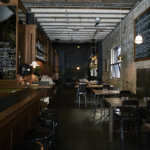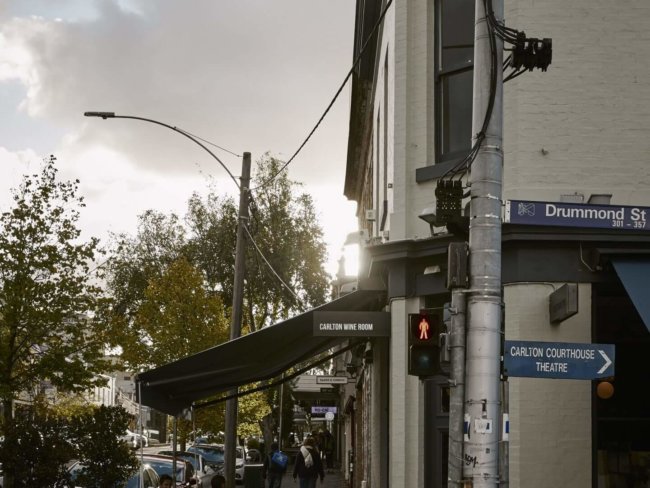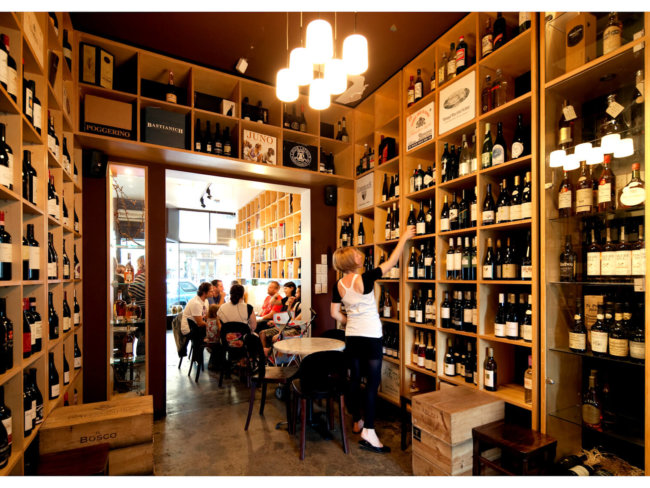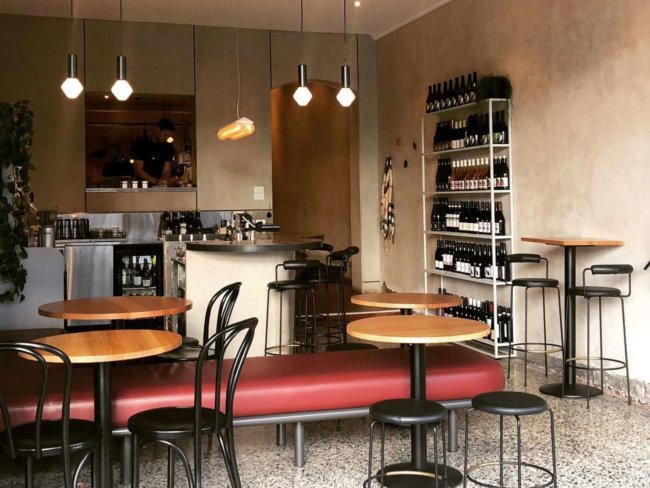The lowdown
Dave Verheul’s produce-first fire-fuelled cooking is some of Australia’s most lauded, and when paired with the skills of wine and service guru Christian McCabe… Well, it’s a formidable combination. Package that into a cosy European wine bar and wipe away any formality and you just may never want to leave.
The regular’s tip
There are always new and reserved wines that aren’t listed, so have a chat to delve deeper.
Some years back, Christian McCabe left behind successful restaurant Matterhorn, in Wellington, to try his luck across the Tasman. That first venture was the celebrated, though now closed, Town Mouse in Drummond Street, Carlton. Along with Town Mouse chef and co-owner Dave Verheul (a Matterhorn alumnus), McCabe branched out further, and more boldly, in 2015, with Embla, which is now a fully-fledged Melbourne institution.
Eric Narioo, founder of legendary natural wine purveyor Les Caves de Pyrene (as well as restaurants, Soif, Terroirs and Brawn), joined McCabe and Verheul as a business partner, and what was the Pizza Napoli site on Melbourne’s Russel Street for decades was turned into a temple of natural wine and fire-fuelled cooking. The Town Mouse more than dipped its toe into the waters of lo-fi wines, with orange-hued glassfuls a typical site in the retro-inspired bolthole, but Embla has gone for full-body immersion, though without the semi-religious fervour that can sometimes accompany it.
Indeed, McCabe and his team – there is now no dedicated sommelier, but rather a team of wine-focused individuals with differing views that they’re happy to share – aren’t interested in dogma, or notions of right or wrong, they just happen to like wines of character that speak to them of place. So, no fiddling in the winery, just unadulterated juice brought to bottle as simply as possible is the mantra.
“There’s no dogma and never has been in terms of intervention,” says McCabe. “We do believe that wine should taste like where it came from, rather than what someone did to it. So, this often leads us to have wines from biodynamic farms. But we don’t pretend to know better than the vigneron how best to express a vineyard; there are plenty of boring wines coming from people who check all the boxes. Our personal palates lean towards purity and probably we have more French wines than any other region represented”
The list stretches to a couple of hundred, but you can more than double that when you include the list from Lesa – their restaurant a floor up – with 18–20 by the glass, which change frequently, some daily. “There are always things that haven’t made it onto any list yet, which we may have if you ask us and know what you’re looking for,” says McCabe. “We change our selection regularly, with new wines on the pour every few days, so you can come here all the time and hopefully never get bored.”
McCabe describes the food as simple, seasonal and produce driven – “stuff you want to eat every day” – with strong relationships with local organic farmers that enable them to even get bespoke crops planted. From there, the produce, like the wine, is handled lightly, with it either served raw, or grilled over coals, or roasted in the wood-fired oven. And while Verheul’s cooking is lauded as some of the best in the land, Embla is very much a bar first and restaurant second. “We are very much welcome the casual drinker,” says McCabe. “The spirit of a good local is about coming in with no occasion in mind and seeing where the night takes you.”

